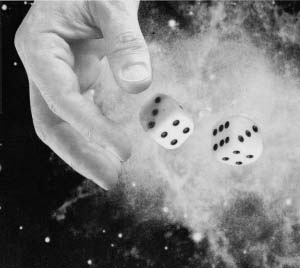
There are many arguments for the existence of God. Most of them rely upon rational arguments—lines of reasoning that seek to demonstrate either the probability or the proof for God’s existence. However, there is one group of people who have made themselves nearly impenetrable to these sorts of arguments because they assert skepticism. Now, open-minded skeptics simply say that they haven’t found convincing arguments yet, but continue the pursuit of this knowledge. On the other hand, closed-minded skeptics believe, on principle, that it is impossible for there to be an argument either for or against the existence of God. They assert that it’s impossible to get to the truth of the matter when looking at whether or not God exists because truth is largely unattainable. So, Blaise Pascal, the 15th century French mathematician, physicist, and religious philosopher, developed an argument that can pierce even this skeptical coat of armor.Â
To set the stage, think of things this way. There are two things that everyone wants—truth and happiness. The closed-minded skeptic (who I’ll refer to from here on as simply “the skeptic�) doesn’t believe that you can really determine or find truth. He has given up on truth, and is therefore in pursuit of happiness. It is to this pursuit of happiness that Pascal’s argument is directed.
No formal “argumentâ€? is going to work on a person skeptical of finding truth, so Pascal proposes a bet—a wager. The bet is to obtain happiness.Â
1. If there is a God, and you believe in Him, you will attain eternal happiness.
2. If there is no God, and you believe in Him, there’s no eternal happiness or harm that will come to you.
3. If there is no God, and you don’t believe in Him, there’s no eternal happiness or harm that will come to you.
4. If there is a God, and you don’t believe in Him, you will fail to obtain eternal happiness while attaining eternal harm.
Use the below diagram to think about this wager argument.
Â
Â
If we can’t trust reason to exhume truth, and happiness is our only hope of discovery, which combination of the above possibilities delivers happiness? The only possibility of winning is to bet on the top left square (God exists and I believe in Him). Suppose I were to offer you an antidote to a disease which has a 100% mortality rate. There are rumors that the disease is going around, yet you are not sure whether or not you’ve contracted it. What have you to lose if you don’t take it? What have you to gain if you ingest it? These are the questions that the skeptic must ask him or herself. If there are no good reasons (arguments) for or against the existence in God, this is all we are left with. What would you bet on?
How close is this to true faith in Christ? Well, maybe not very close at all. Catholic philosopher, Peter Kreeft, says that while Pascal’s wager argument may be selfish and have little or nothing to do with sincere faith, at least it may scare you away from atheism. And God, in His divine humility, stoops to conquer even such mixed motives for approaching His thrown.Â
Pascal’s Wager Argument
Suggested Reading: Blaise Pascal, Mind on Fire: A Faith for the Skeptical and Indifferent
2 Comments on “An argument for a closed-minded skeptic”
Great blog Brent! I read Pascal’s same wager in a book entitled Zero written by Charles Seife. A very interesting book about the history of nothing…the concept of zero. He valued Heaven as infinity, Hell as negative infinity and nothing as zero. Let’s say the Christian is correct, thus all believers have a probablity of 1 of attaining Heaven (a payoff of infinity). The unbeliever would have a probability of 1 of attaining negative infinity (a payoff of negative infinity). If the unbeliever is correct, both the Christian and the unbeliever have a probablity of 1 of attaining nothing after death (a payoff of zero). Thus being an unbeliever, your possible payoffs range from 0 to negative infinity. Being a Christian, your possible payoffs range from 0 to infinity. He concluded that being a Christian was the safer wager! I don’t blame him!
Hey Pastor Brent. Glad I found this tonight. I’ve heard this before but it was good to read again. During my recovery process the past 6 years (w/ Joyce WIlliams from Light of the Rockies) from an abusive childhood/adolescence and RA (ritual abuse) from a very young age, I’ve fought so many of these arguments from the enemy. I do have to say that the first time I read this it disturbed me because it seemed like it was an eeny, meenie, miney mo type of decision. Maybe because of my own arrogance or ignorance, I assumed everyone should come to God because of love, truth and the obvious presence of Him in creation. Turning to God out of fear or because it’s the best choice seemed cheap and even insincere. Does it really matter to God why we come to Him? Why we seek Him? I wonder. My opinion? Other then selfish or evil motives, I don’t think so. His arms are open and He works in mighty ways no matter the motivation. What do you think? Food for thought for me tonight. Thanx.!